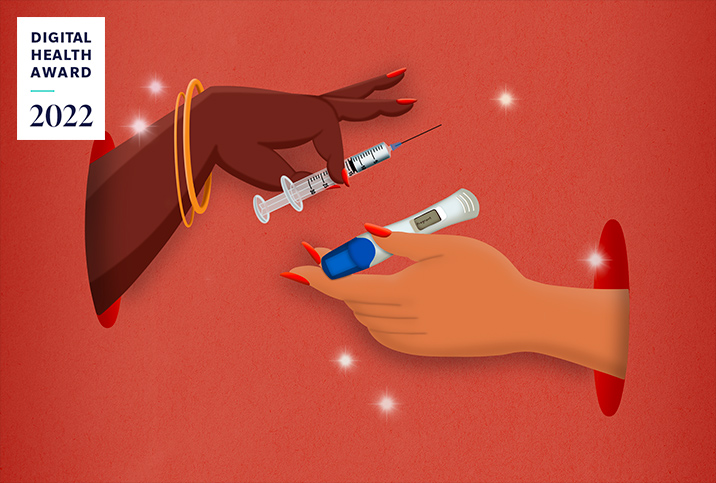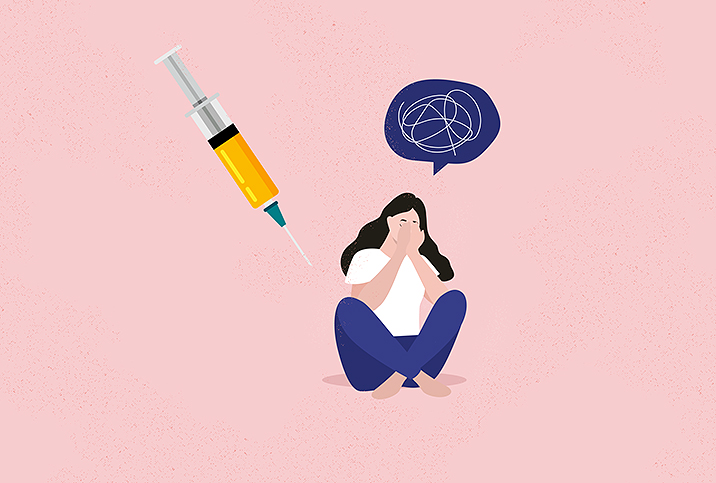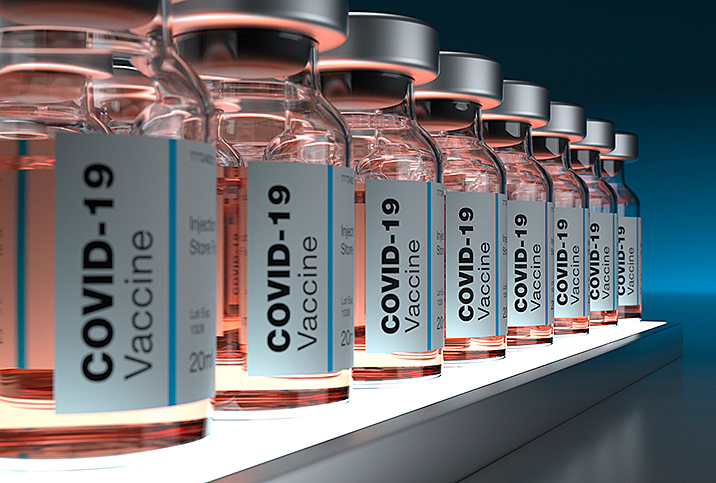Doctor's Note: Pregnant? Run, Don't Walk, to Get Your COVID-19 Vaccine

On September 29, 2021, the Centers for Disease Control and Prevention (CDC) issued an urgent health advisory to "people who are pregnant, recently pregnant (including those who are lactating), who are trying to become pregnant now, or who might become pregnant in the future," strongly recommending them to get vaccinated against COVID-19.
Let that sink in.
If you have two X chromosomes, an urgent health advisory strongly recommends you get the COVID vaccine. Even if you are currently pregnant. Even if you are breastfeeding.
The delta variant of COVID is affecting pregnant people quite severely, often with devastating effects. Current reports out of England state that 1 in 5 critically ill COVID patients requiring advanced life support measures were pregnant.
Pregnant women have a two-fold increased risk of needing admission to an ICU and a 70 percent increased risk of death from COVID infection. They are at increased risk for many adverse outcomes, including preterm birth, stillbirth and neonatal ICU admission.
With all of these risks, many women remain reluctant to get vaccinated, wanting to wait until after delivery in case there is any potential harm for their unborn baby. Whether they are unclear on the above risks or have fallen victim to misinformation, this puts them and their babies at risk for avoidable negative outcomes.
As an OB-GYN, I am here to tell you, please run, do not walk, to the nearest pharmacy to get your shot.
Let's break down some of the common myths I hear from patients who are fearful of the vaccine. There is so much misinformation out there, and this misinformation is killing people.
Myth: The vaccine was rushed/the data is too new
mRNA vaccine technology has been around since the 1990s. Messenger RNA, or mRNA, is a molecule that contains instructions for creating proteins. The actual mRNA is quickly broken down by the body, which is why early vaccines did not work well—the mRNA was broken down before it could deliver its instructions.
Advancements in medical technology allowed the mRNA to be "wrapped" in fatty acids, which allowed the mRNA to survive in the body long enough to deliver the message before breaking down hours to days after the vaccine was given.
Once the message is delivered, the body uses the instructions to create a protein—in this case, the spike protein of the COVID virus. Your immune system can then recognize this protein if you encounter the virus, and effectively prevent you from having a severe case of COVID.
Myth: It's unclear if the vaccine is safe in pregnancy
As of September 2021, there have been 161,000 pregnant women enrolled in the CDC's V-safe post-vaccine data checker to collect data on outcomes of pregnancies in women who have been vaccinated. There have been no noted increases in any negative pregnancy outcomes: No increased risk of preterm birth, preeclampsia, miscarriage, anomalies, you name it.
Data is continuing to be collected, but based on available data, the CDC, the American College of Obstetricians and Gynecologists (ACOG) and the Royal College of Obstetricians and Gynecologists have all strongly urged vaccination in pregnant patients.
The overwhelming evidence we are seeing during the delta surge is that unvaccinated pregnant patients are at increased risk for severe illness and death—again, up to 70 percent increased risk of death from this virus.
Myth: The side effects can last months or years
All vaccines in use today are known to have a side effect profile window of about six to eight weeks. This is because of the short time frame the vaccines are actually in the body. Serious side effects can occur, but are very rare, and when they do occur, they occur within that early time frame.
There is no need to worry about long-term delayed side effects.


















